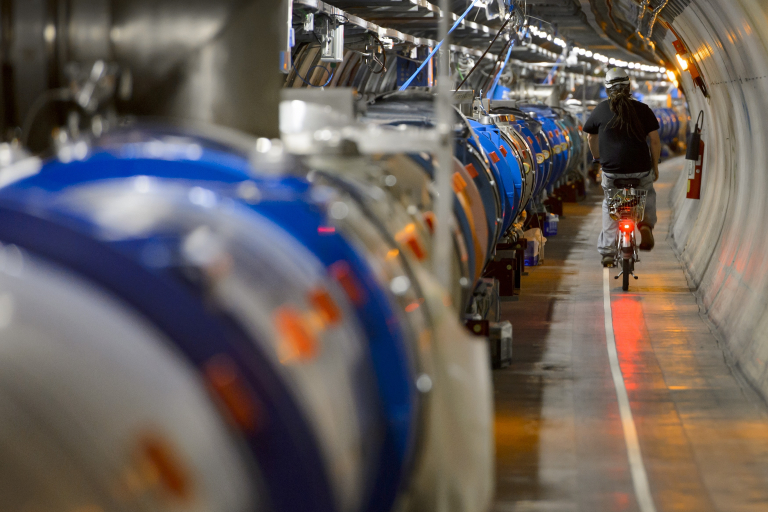
Image: AFP/Fabrice Coffrini via AFP Relaxnews
This week Google announced that the company will be joining CERN openlab, a partnership that will lay the foundation of future research in cloud computing, machine learning and quantum computing.
So why would one of the world’s largest and most respected institutions for physics research, known for the world’s largest particle physics laboratory operating the Large Hadron Collider, want to partner with Google?
Simple. The biggest scientific laboratory also produces the largest amount of data. Over the next couple years as the LHC evolves, the “computing capacity required would be around 50 [to] 100 times higher than today,” which means data storage needs will be up to an order of magnitude more, of exabytes, an amount that Google enthusiastically stepped up to the plate to manage.
With experience working with Fermilab, another particle physics and accelerator lab, Google already proved its aptitude when it comes to data management, analysis, and processing in the scientific realm. With such a collaboration, Google will be able to develop better technology that can help CERN scientists do better science, in turn helping themselves develop more technology.
The relationship is mutually beneficial for the companies as well as valuable for global scientific advancement, as head of CERN openlab Alberto Di Meglio said, “Google can help us to successfully tackle some of these challenges, as well as producing technical breakthroughs that can have impact beyond out research community.”
These plans are in the process of being finalized, Di Meglio also stated. JB
RELATED STORIES:
Vine rises from the dead as Byte
Facebook simplifies Messenger app